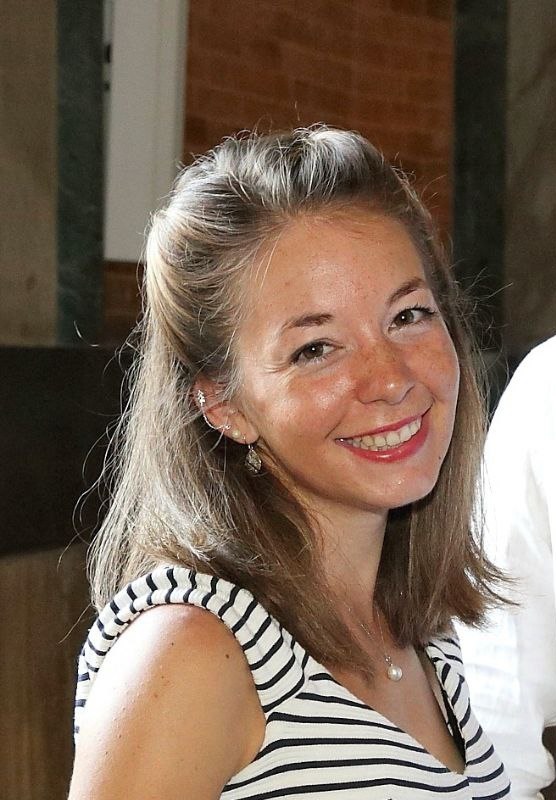Artificial Intelligence is rapidly changing not just how we work, but how we learn, think, and understand the world. But how do we adress that?
At Scuola Superiore Sant’Anna in Italy, project manager Rossella Raso hosts Ethos vs Tekhnè, a conversation that brings together two young researchers — Sara Mazzucato, PhD student in Biorobotics, and Guido Cassinadri, PhD student in Health Science, Technology and Management — to explore where technology meets ethics.
Thinking with, not through, the machine
The center of this podcas revolves around the use of Generative AI and how its use has been implemented on daily activities. Guido Cassinadri shares that according to a recent European Survey, 57% of people aged 16 to 30, and over 70% of university students, already are using generative AI tools — either for studying, writing or summarizing texts, and other kind of tasks. But he also warns about the impact:
The more we delegate this tools, the less we are exercising our own cognitive functions, like memory, reasoning, problem-solving, critical thinking — and this can be a risk over time, because, as they say “use it or lose it.”
As tools like Copilot or ChatGPT increase in usage, Sara Mazzucato highligts the importance of talking about AI and its benefits, but with a clear view on hoe to use it and making a distiction between useful application of automation, and harmful replacement
The hidden cost of Artificial Intelligence
Beyond ethics, there is an environmental cost to AI that is easy to overlook, as training large models can emit up to 500 tons of CO₂, the equivalent of five intercontinental flights.
There are lighter, open-source, and localized models that use less energy and are more accessible. Being smart about AI means considering these alternatives too.
A word to students
AI is powerful, inspiring, and transformative, but it’s also demanding. Use it to amplify your learning, not outsource your mind. Let it challenge you, not think for you. Because in the end, no algorithm will define your humanity: your conscience will.

Sara Mazzucato
Sara holds an MSc in Neural Engineering (2022) from the Scuola Superiore Sant’Anna, Italy, and a BSc in Biomedical Engineering (2020) from the University of Padua, Italy. During her studies, she undertook academic exchanges at ISEN in France and conducted visiting research at Lund University (Sweden) and the University of Cambridge (UK). Her MSc thesis, completed at EPFL (Switzerland), focused on the ex vivo characterization of ultrasound neuromodulation in spinal dorsal roots using a microfabricated nerve-on-a-chip platform. A key aspect of her work was developing an automated data processing framework to enable more comprehensive analysis.
In 2022, Sara began her Ph.D. at Scuola Superiore Sant’Anna, focusing on artificial intelligence in healthcare and bioinformatics methods for genetic data. In 2023, she was a visiting PhD student at Fermilab, USA, contributing to the optimization of computational resources for medical applications. She is currently collaborating with the Biosemantics group at Erasmus MC (Netherlands), where she focuses on clinical natural language processing and the integration of information from clinical text data into patient-level prediction models.
Guido Cassinadri
He got a bachelor degree in Philosophy and a master degree in Philosophical Sciences at the University of Bologna. During his master degree, Cassinadri has been an Erasmus student at Utrecht University. Moreover, he completed his master thesis thanks to a research fellow scholarship at the department of Cognitive Sciences at Vassar College, NY, (USA). Cassinadri worked as a consultant for Appears, is a member of the organizing commettee of the seasonal school ”Ethos + Tekhné: A New Generation of AI Researchers (2nd Edition)” of the EELISA network of Eruopean Univerisities. He also developed a dissemination project thanks to his YouTube channel “La Filosofia Tiene Svegli“. He is now a PhD visiting student and guest scientist at the Technical University of Munich at the Institute of History and Ethics of Medicine. In conclusion, he is also a researcher member of the GENAI Project: ”Ensuring Human Cognitive Flourishing against the background of GENerative AI: sustaining deep minds within our new cognitive ecology.”


Rossella Raso
Rossella Raso is a Biomedical Engineer with a PhD in Automation, Robotics, and Bioengineering from the University of Pisa. She works as a Technologist and Research Manager at Scuola Superiore Sant’Anna, where she has over nine years of experience in coordinating national and European research projects. Recently enrolled in the Executive Master in Public Management at Politecnico di Milano, she is passionate about exploring the potential of artificial intelligence for both professional and everyday life.

